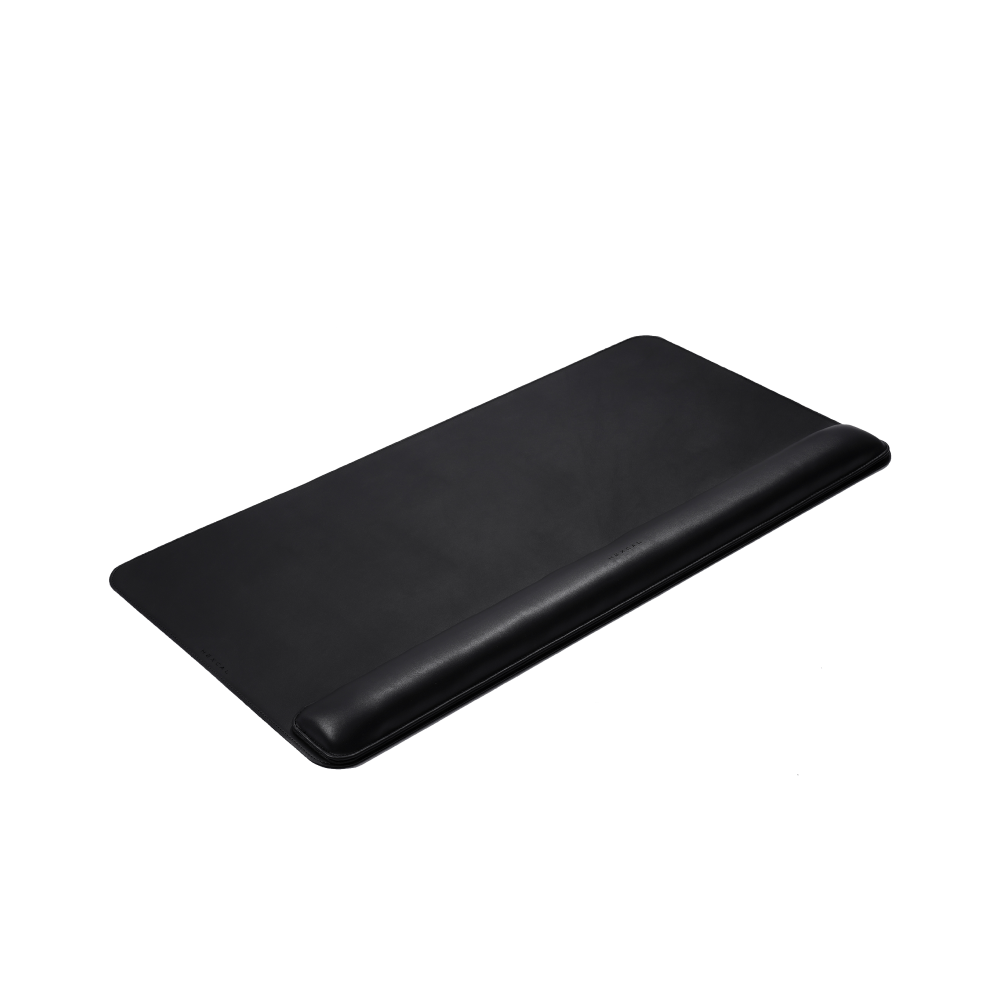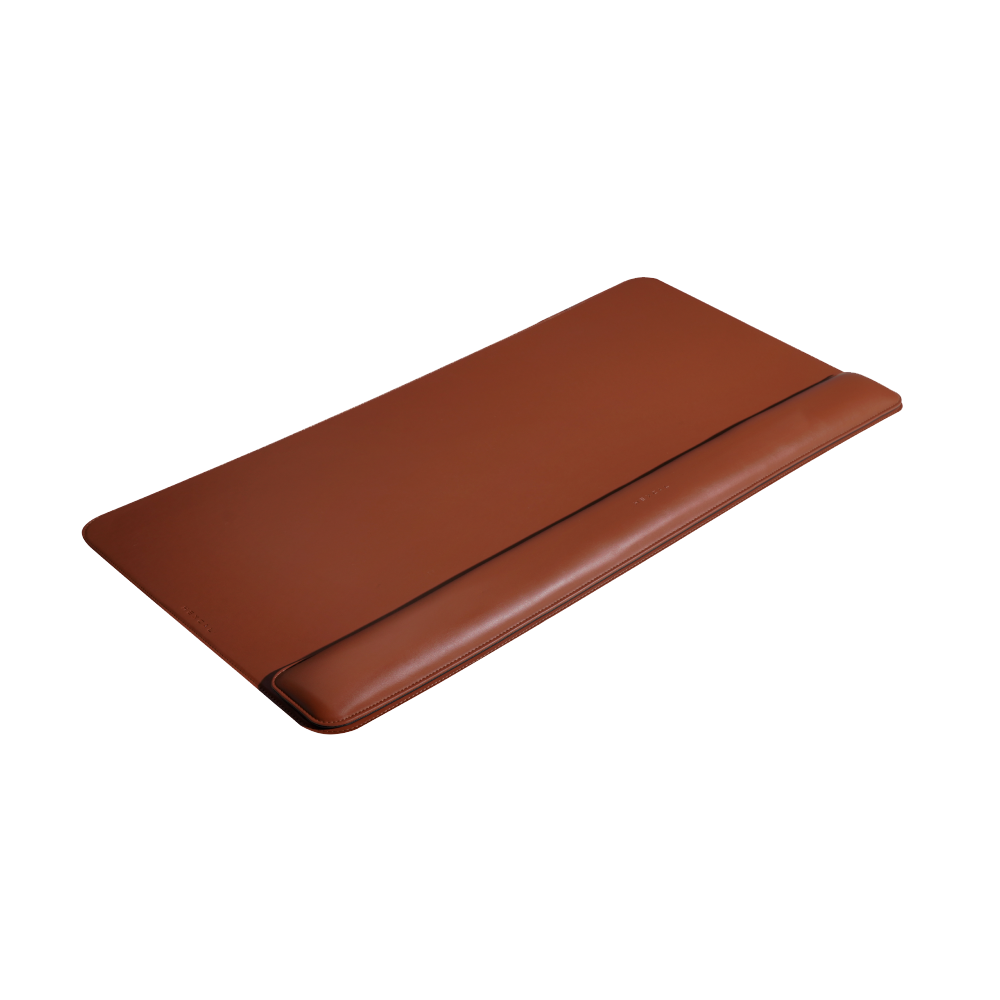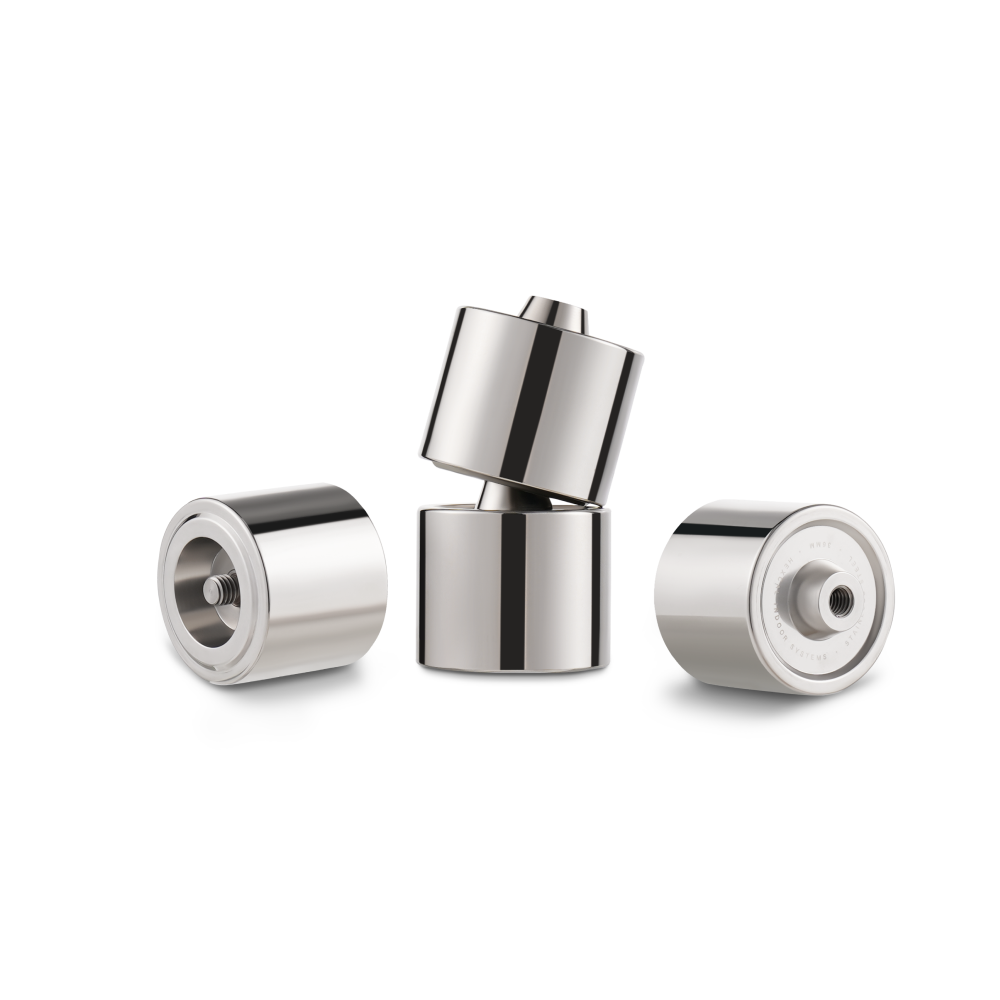In-depth interview with Magnetic Magazine: How having a clean music studio affects creativity

The world of music production often attracts eclectic and eccentric individuals, myself included. There's a certain romanticism attached to a studio desk adorned with scattered synths and production paraphernalia, where ideas are hurled at a DAW (Digital Audio Workstation) in a frenzied search for that magical moment of inspiration.
But does the chaos of such an environment truly enhance creativity?
By taking a step back and consulting industry experts, music producers quickly realize that having a well-organized space and a clean studio is the secret ingredient for unlocking heightened levels of creativity and streamlining workflow, resulting in both increased quantity and quality of creative output.
To explore this concept further, we invited the creative team at Hexcal to join us for a discussion on the benefits of a clean and organized studio, and how it can positively impact one's creative life and career as a music producer.

Q1: Why is having an organized music studio important?
Edward (Hexcal): To answer that question, we must delve into the nature of music production itself. When I'm working, I need to be fully immersed in the creative process while simultaneously focusing on the intricate details. Ideas often flash and fade within seconds, requiring immediate action and a persistent mindset throughout the creation process.
In today's music production landscape, the creative and technical aspects go hand in hand. Professional devices such as sound cards, recording equipment, pedals, controllers, speakers, and headphones play a pivotal role in shaping ideas. However, they can also introduce distractions that hinder the workflow. Ideally, nothing should interrupt or impede me while I pursue the butterflies of inspiration in those critical and fleeting moments.
Therefore, having an organized music studio is crucial to avoid physical and visual distractions. By organizing devices, tools, and gear, integrating them seamlessly into the workflow, and arranging them within arm's reach, we create a dedicated work environment that allows us to focus solely on the art of music composition.

Q2: How do you think clutter affects creativity?
Edward (Hexcal): Clutter can be a significant source of distraction in music studios and, consequently, it has a negative impact on a producer's workflow. Unfortunately, the clutter issue is often overlooked by musicians.
From a psychological standpoint, clutter creates visual distractions that generate unrelated signals in our brains. Our minds naturally form associations based on our surroundings, whether we consciously intend them or not. This is similar to how ambient sounds can influence one's creativity and work quality. Therefore, visual distractions in the form of clutter can hinder the creative process for music creators.
Compromising on clutter is a common occurrence in the industry, especially when facing tight deadlines. However, this clutter may be the very reason for missed goals.
Considering each musician's workflow, adjusting devices according to their creative process can be challenging due to the sheer number and complexity of devices, as well as the need to switch between instruments and tasks. In other words, clutter makes it difficult to optimize workflow, affecting the speed and consistency of work in the long run. All of these factors ultimately reflect in the output, progress, and personal growth of an artist.
Let's imagine two musicians, both given a day to produce a musical piece. Musician A has a messy workspace that requires excessive time to access and change devices. Expensive equipment can take minutes, or even hours, to locate and may even become lost. Additionally, the chaotic workspace exudes anxiety and stress. On the other hand, Musician B has a neatly organized and easily accessible workspace, allowing for seamless transitions between devices and tasks, creating an atmosphere of serenity and composure.
Which musician do you think would produce a more polished work by the end of the day?
Now, multiply that day by 365 and consider a musician's career spanning 40 years. The amount of time saved and stress reduced through organization is immense. This line of thinking highlights the importance of maintaining an organized studio.
Q3: What are the dangers of having a messy music studio?
Edward (Hexcal): A messy music studio puts valuable instruments and equipment at risk. Tripping over clutter in the studio can lead to disastrous consequences, causing instruments and equipment to fall and potentially break. More importantly, there is also a risk of personal injury.
Drawing from my personal experience as an amateur guitarist, I often handle everything with one hand while the other is busy playing and changing tones on my guitar. Without careful attention, mistakes are more likely to occur, potentially damaging my priceless instruments and causing connectivity issues. Accidentally turning off the power or failing to record a piece due to incorrect connections can lead to a mental crisis, especially if work hasn't been saved during a creative session. Losing data and having to reset equipment can completely disrupt the flow of work.

Q4: Why is it so challenging to maintain an organized music studio?
Edward (Hexcal): Music studios contain various equipment with different interfaces, making organization and integration into one's workflow and workspace challenging, even for experienced music professionals. Over time, it's crucial to continuously optimize the workflow and studio setup based on different creative needs and evolving habits. However, once a setup is implemented, it becomes difficult to change and adjust.
One of the most significant challenges is cable and equipment management. Arranging and connecting cables correctly, ensuring the right topology, and dealing with bulky cords requires significant effort and can become tangled and distorted over time.
Setting up a music studio is far more complex than a typical computer setup. It's akin to renovating a new house centered around your desk and workspace.

Q5: Share your three favorite tools for staying organized in the music studio.
Edward (Hexcal): I would pick:
-
Hexcal Studio: Hexcal Studio is not only one of my favorites but also an essential tool for me. Our team designed this product specifically to address the challenges of desktop setups, regardless of the number of inputs or the size of the devices. I would go as far as to say that it's the only heavy equipment desktop management solution on the market. Excluding it from my music studio would be like driving a car without seats.
-
Effects Pedals: I highly recommend digitally driven, comprehensive effects pedals, such as the AX series Amp Modeler from Fractal Audio Systems. These pedals save a significant amount of space when connected to a computer, allowing for a more streamlined setup.
-
WL-20 Digital Wireless Guitar System: Instead of relying on cords, I prefer using a wireless transceiver like the WL-20 Digital Wireless Guitar System from Boss. It offers convenience and eliminates the need for extensive wire dragging, reducing the risk of collateral damage to instruments.
By incorporating these tools into my music studio, I can maintain a more organized and efficient workflow. However, it's important to note that these tools are just a few examples, and the choice of tools may vary depending on individual preferences and specific studio setups.
Ultimately, the key is to find tools and solutions that help streamline the workspace, reduce clutter, and enhance the creative process. Every music producer may have their own favorite tools or methods for staying organized, but the underlying principle remains the same: creating an environment that minimizes distractions and allows for seamless workflow is essential for fostering creativity.
In conclusion, having a clean and organized music studio is crucial for music producers to tap into their highest levels of creativity. By eliminating physical and visual distractions, producers can focus more intensely on their work, capturing ideas as they arise and maintaining a steady creative flow. Clutter not only disrupts workflow but also poses risks to valuable equipment and personal safety. While it may be challenging to maintain an organized studio, investing time and effort into organization pays off in the long run, leading to increased productivity, better output, and a more enjoyable creative process.
The interview with the Hexcal team sheds light on the significance of organization in the music production space, emphasizing the benefits it brings to the creative life and career of music producers. By prioritizing organization and incorporating suitable tools and solutions, producers can create an environment that enhances their creativity and maximizes their artistic potential.







